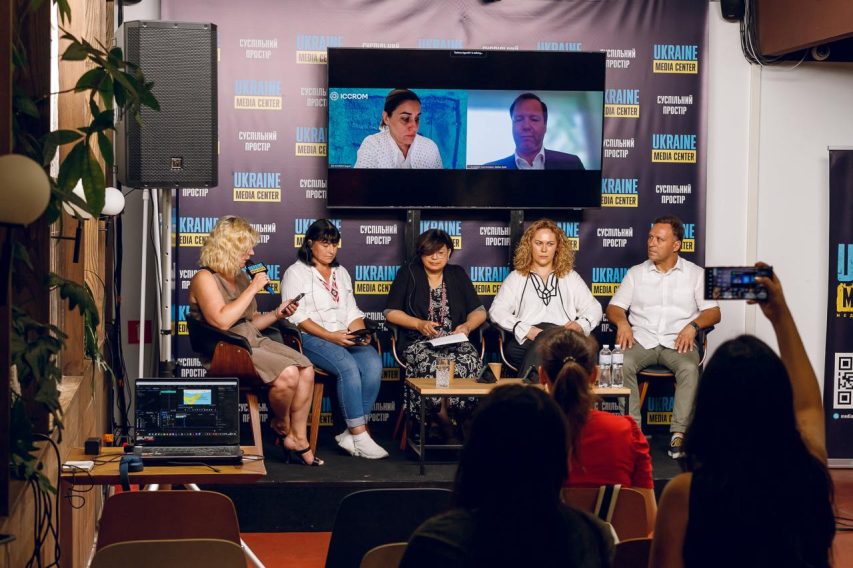
Ukraine’s First National Team of Cultural First Aiders: how specialists were trained and how they will work in the future
From April to July 2024, 23 Ukrainian specialists underwent training as part of ICCROM’s flagship project “Enhancing Capacities in Ukraine for Cultural Heritage First Aid and Recovery Planning.” A specialized team of cultural first aiders was formed from these experts.
This topic was discussed during a press conference at Media Center Ukraine.
Aparna Tandon, Program Manager for ICCROM’s First Aid and Resilience for Cultural Heritage Program, noted that the training for the National Team of Cultural First Aiders was held in both online and offline formats, where trainees practiced the skills of working with affected objects and cultural heritage objects.
“(There was – Ed.) very hands-on working from the very beginning, first, to understand how we can anticipate and take preventive actions to protect heritage from disasters or conflicts, from natural and manmade hazards like floods and from missile strikes. (We focused on – Ed.) what can be done to improve the preparedness, how we can work with the state emergency services. Then there were also demonstrations on the ground to assess damage to Viazivka church (Zhytomyr region – Ed.). Also (we – Ed.) planned long term recovery by working together with communities while understanding how these communities value their heritage and how they would like to get access to it and how quickly we can revive this access,” Aparna Tandon said.
According to her, this will be the first team to train specialists in their regions within the framework of projects aimed at stabilizing cultural heritage, providing first aid, assessing risks and planning their full recovery. She expressed hope that this team will participate in future projects and will spread their knowledge at the community level.
Both national and international experts were involved in the training. In total, representatives from 11 regions of Ukraine took part in the training.
Ihor Poshyvailo, Director at the National Museum of Revolution of Dignity, Co-Founder of Agency for Cultural Resilience, also pointed out that all regions responded to the opportunity of training specialists, especially those where knowledge, needs and work in regards to the systematic rescue of cultural heritage is the most relevant: Kharkiv, Donetsk, Mykolaiv, Zaporizhia, Kherson and Kyiv regions.
Read more: https://mediacenter.org.ua/news
 Back
Back 